Hello and welcome!
This past weekend, we concluded our observance of Catholic Schools Week. We were glad that many of our schools were able to participate in different activities for Catholic Schools Week. This has been a unique year in so many respects, and we are all very proud of what our Catholic schools have been able to accomplish despite all the challenges of the pandemic. We are very grateful to our Superintendent of Schools, Tom Carroll, who has worked so hard to equip our schools and the Catholic Schools Office to deal with the COVID crisis.
This has been a unique year in so many respects, and we are all very proud of what our Catholic schools have been able to accomplish despite all the challenges of the pandemic. We are very grateful to our Superintendent of Schools, Tom Carroll, who has worked so hard to equip our schools and the Catholic Schools Office to deal with the COVID crisis.
The National Catholic Education Association noted recently that the enrollment at Catholic schools around the country is 1,650,000 students attending about 6,000 schools. They also pointed out that 22 percent of those students are from racial minority backgrounds and 24 percent are from non-Catholic families. These figures point to the extraordinary contribution Catholic schools are making to our country.
I certainly want to encourage everyone to learn more about our Catholic schools in the archdiocese and hope they take advantage of the fine education and religious formation that they offer.
Monday, I was very happy to talk with Marcelo Suárez-Orozco, who is the Chancellor of UMass Boston and a member of the Pontifical Academy for Social Sciences. He reached out to me, and we had a virtual visit. He is a sociologist who came to the States to study during the Dirty War in Argentina and has written a great many books on immigration.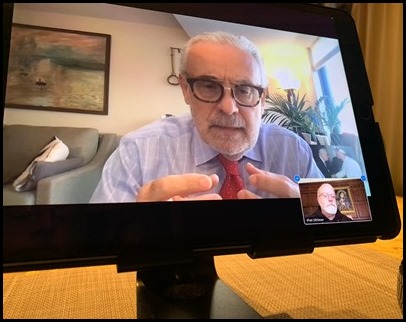 One of the things he wanted to discuss with me was legislation that has been enacted in California and other states that allows DREAMers, undocumented children who were brought to this country by their parents at a young age, to be eligible for in-state tuition at public colleges. Without such a measure, undocumented children are treated as foreign students and therefore are charged out-of-state tuition. Having a law like this in Massachusetts would certainly allow many more DREAMers to continue their education.
One of the things he wanted to discuss with me was legislation that has been enacted in California and other states that allows DREAMers, undocumented children who were brought to this country by their parents at a young age, to be eligible for in-state tuition at public colleges. Without such a measure, undocumented children are treated as foreign students and therefore are charged out-of-state tuition. Having a law like this in Massachusetts would certainly allow many more DREAMers to continue their education.
I thought it was a wonderful idea and told him that it was something that I would certainly present to the Massachusetts Catholic Conference for the consideration of the bishops of the state as the kind of legislation we might promote.
Monday was also the International Day of Prayer and Awareness Against Human Trafficking, which was chosen to coincide with the Feast of St. Josephine Bakhita. Here in the archdiocese, we sponsor a safe house for victims of human trafficking, and many of our local religious women are also involved in providing services to women who are being trafficked.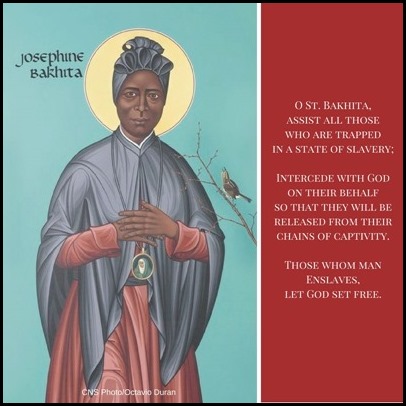 This is a very serious problem that so often exists outside of people’s consciousness, but the Church has the Feast of St. Josephine Bakhita as a reminder of the thousands of women who are suffering because of the scourge of human trafficking.
This is a very serious problem that so often exists outside of people’s consciousness, but the Church has the Feast of St. Josephine Bakhita as a reminder of the thousands of women who are suffering because of the scourge of human trafficking.
Wednesday, I participated in an interview with Teresa Pitt Green to be used in one of her upcoming online conferences. Teresa is a survivor of sexual abuse who heads the wonderful organization Spirit Fire, which promotes reconciliation and safeguarding. 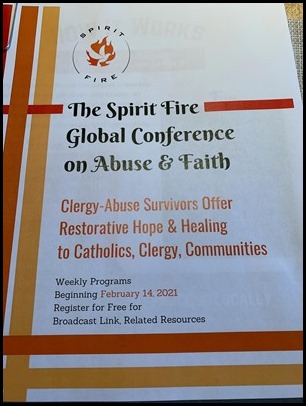 During this time of the pandemic, the educational efforts around safeguarding have, on the one hand, been hampered by our inability to gather people together, but on the other hand, we have been very successful in reaching large numbers of people through online efforts. This has been the experience of organizations such as Spirit Fire and our own Pontifical Commission for the Protection of Minors.
During this time of the pandemic, the educational efforts around safeguarding have, on the one hand, been hampered by our inability to gather people together, but on the other hand, we have been very successful in reaching large numbers of people through online efforts. This has been the experience of organizations such as Spirit Fire and our own Pontifical Commission for the Protection of Minors. 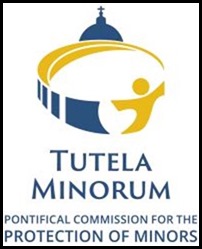
In fact, as part of our efforts to increase digital outreach, the commission has recently launched a new webpage about our work, TutelaMinorum.org. I invite all of you to visit it and read more about our work.
Thursday, we had one of our regular meetings of the Presbyteral Council of the archdiocese. Among the subjects we discussed was the upcoming launch of the Catholic Appeal, and we had an opportunity to preview the annual appeal video.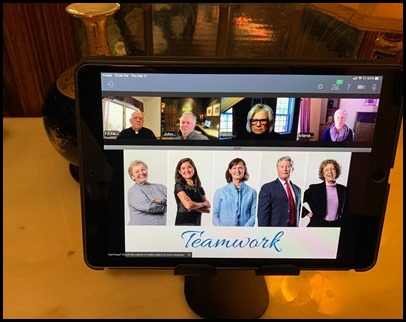 We are very grateful to Pat Bartram and her team, who have done such an extraordinary job on this year’s appeal under very challenging circumstances. We are also very grateful to the pastors who have participated in this effort.
We are very grateful to Pat Bartram and her team, who have done such an extraordinary job on this year’s appeal under very challenging circumstances. We are also very grateful to the pastors who have participated in this effort.
This week it was announced that Carl Anderson would be stepping down as the Supreme Knight of the Knights of Columbus after having reached the mandatory retirement age of 70. He has been in that post for over 20 years.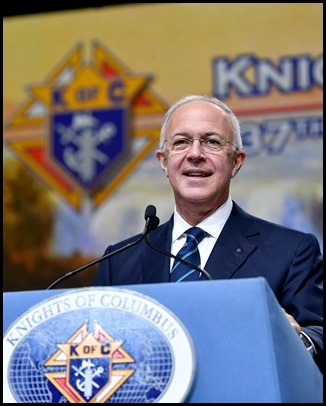 I first met him when I was a young priest working in Washington and have witnessed his service to the Church in so many different ways— beginning with his participation in the foundation of the John Paul II Institute in Washington D.C. and all the wonderful things that he has done for the Knights of Columbus. Thanks to his efforts, the Knights have extended to other parts of the globe, grown in numbers and continue to be an extraordinary force for good in our Church and in the world. We are particularly grateful for all they have done to promote vocations to the priesthood, the Gospel of Life and religious freedom. And, of course, the Knights can always be counted on to provide support after any natural disaster or catastrophe. Their contribution has been just extraordinary.
I first met him when I was a young priest working in Washington and have witnessed his service to the Church in so many different ways— beginning with his participation in the foundation of the John Paul II Institute in Washington D.C. and all the wonderful things that he has done for the Knights of Columbus. Thanks to his efforts, the Knights have extended to other parts of the globe, grown in numbers and continue to be an extraordinary force for good in our Church and in the world. We are particularly grateful for all they have done to promote vocations to the priesthood, the Gospel of Life and religious freedom. And, of course, the Knights can always be counted on to provide support after any natural disaster or catastrophe. Their contribution has been just extraordinary.
Certainly, the crowning event of Carl Anderson’s tenure as Supreme Knight was the beatification of the Knights’ founder, Father Patrick McGivney. It was such a blessing for our country to hold up the example of this extraordinary parish priest whose sanctity and ministry has touched the lives of so many millions of people.
Carl Anderson brought such energy and focus to the work of the Knights of Columbus, and we are so grateful for his friendship and all that he has accomplished. We look forward to working with his successor, Supreme Knight Patrick Kelly, who will be assuming his new role on March 1.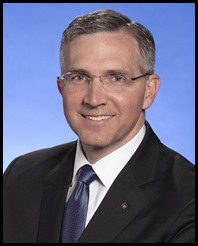
One of the most serious social problems that we face as a society is homelessness and the shortage of affordable housing. For the last 50 years, the archdiocese’s response to this has been the Planning Office for Urban Affairs. 
Since its founding half a century ago by Cardinal Cushing and Msgr. Michael Groden, the POUA has developed 3,000 units of affordable and mixed-income housing and provided homes for nearly 11,000 people. We are particularly proud of the POUA’s collaboration with St. Francis House and the Pine Street Inn in their attempts to find housing for homeless and formerly-homeless people in our area.
Recently, the POUA released a video highlighting their work over the last 50 years, and I would like to share it with you here:
We are so grateful for this extraordinary work that has resulted in thousands of beautiful units of housing that have transformed people’s lives.
Until next week,
Cardinal Seán
